More dance - less work 
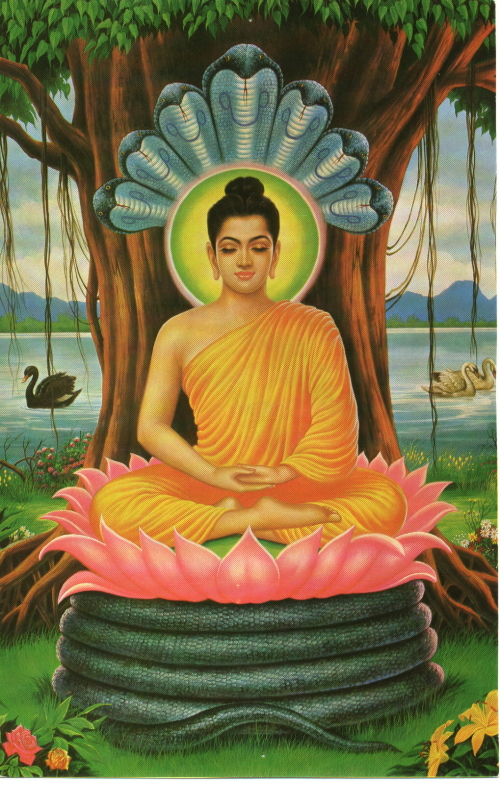
Mindfulness:
The Art of Conscious Living
Mindfulness is an ancient Buddhist practice
which has profound relevance for our present day lives.
This relevance has nothing to do with Buddhism per se
or with becoming a Buddhist,
but it has everything to do
with waking up
and living in harmony
with oneself and with the world. 
It has to do with examining who we are,
with questioning our view of the world and our place in it,
and with cultivating some appreciation
for the fullness of each moment we are alive.
Most of all, it has to do with being in touch...

...Mindfulness means paying attention
in a particular way: on purpose,
in the present moment, and nonjudgmentally.
This kind of attention nurtures greater awareness,
clarity, and acceptance of present-moment reality.
It wakes us up to the fact that our lives unfold only in moments.
If we are not fully present for many of those moments,
we may not only miss what is most valuable in our lives
but also fail to realize the richness
and the depth of our possibilities for growth,
and transformation...

...When we commit ourselves to paying attention in an open way,
without falling prey to our own likes and dislikes,
opinions and prejudices, projections and- expectations,
new possibilities open up
and we have a chance to free ourselves
from the straitjacket of unconsciousness.
I like to think of mindfulness simply as the art of conscious living.
You don't have to be a Buddhist or a yogi to practice it.
In fact, if you know anything about Buddhism,
you will know that the most important point
is to be yourself and not try to become anything
that you are not already. 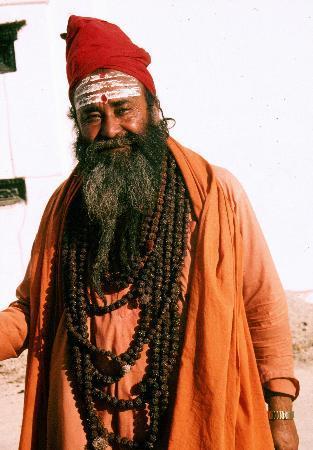
Buddhism is fundamentally about being in touch
with your own deepest nature and letting it flow
out of you unimpeded.
It has to do with waking up
and seeing things as they are. 
In fact, the word "Buddha"
simply means one who has awakened
to his or her own true nature.
- Jon Kabat-Zinn
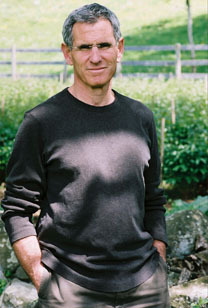
Mindfulness Stress Reduction And Healing
Google Tech Talks
March 8, 2007
ABSTRACT
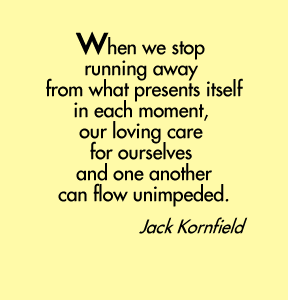
Jon will describe the revolution in medicine
that has occurred over the past 30 years
that has integrated the mind back into the body
and developed a remarkable range of practices
for integrating one's experience, reducing stress,
healing the body, coping more effectively with emotions
such as anxiety, anger, and depression,
and cultivating greater well-being and happiness.

His work has been instrumental
in bringing Buddhist meditative practices,
as he likes to say, "without the Buddhism"
to full acceptance within the mainstream of medicine,
psychology, and health care,
and has shown them to be effective
in people suffering from a wide range of medical problems..
(( The VERY INTERESTING and INSPIRATIONAL lecture
is 74 minutes long - take the time, its worth it!!! ))
"At least 1000 research studies
on mindfulness-based stress reduction (MBSR)
are in print in peer-reviewed journals,
showing it can reduce chronic pain,
high blood pressure,
serum cholesterol levels,
and blood cortisol,
and alleviates depression,
anxiety,
post-traumatic stress disorder
and eating disorders.
MBSR can also change
the way emotions are regulated
in the prefrontal cortex
and alter the immune response to an influenza vaccine."
from The Power of Paying Attention:
What Jon Kabat-Zinn Has Against "Spirituality"
in Psychotherapy Networker (Nov/Dec 2004)

Current research information is available
from the Center for Mindfulness in Medicine,
Health Care and Society
at the University of Massachusetts Medical School.
There are journal articles summarizing
the efficacy and research in the following areas
of application and integration
of Mindfulness-Based Stress Reduction
and physical and mental health diagnosis.
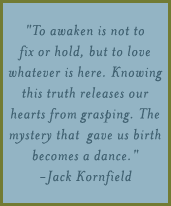
In general the findings include:
- Reduction in suffering
- Increased health and wellbeing
- Decreased symptomology
- Decreases medication use
- Decreases treatment cost
- Increases treatment retention and relapse rate
- Increased immune function
- Decreased blood pressure, heart rate,
- Decreased cardiovascular disease
- and decreased hospitalization
more satisfied with their lives
and less judgmental of themselves and others.



